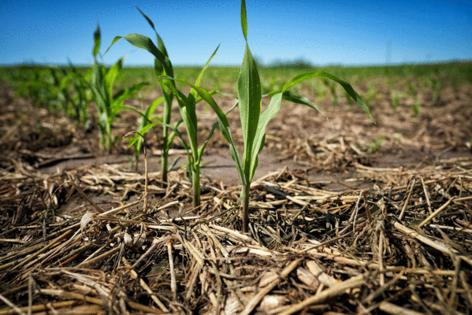Land O'Lakes lays off Truterra workers as federal sustainability support wanes
Published in Business News
Land O’Lakes is folding its Truterra division into other business units and laying off some employees as the sustainability arm of the Minnesota cooperative grapples with the loss of a major federal grant and other difficulties.
Truterra laid off about 30 workers last week, according to several sources familiar with the situation. Employees were told earlier last month the business would merge with the three other Land O’Lakes divisions: dairy foods, WinField United and animal nutrition.
Truterra’s mission will continue, per the Arden Hills-based cooperative.
“Land O’Lakes is shifting its approach with Truterra from operating a stand-alone business to embedding the work within our three core business units,” Land O’Lakes said in a statement. “This integration reflects our belief that this work isn’t a separate initiative, but a core capability that supports every part of our business.”
The reorganization at the co-op follows the U.S. Department of Agriculture reducing a $96 million grant to $15 million earlier this year, calling it a “climate slush fund.”
“The Partnerships for Climate-Smart Commodities initiative was largely built to advance the green new scam,” USDA Secretary Brooke Rollins said in an April news release. “We are correcting these mistakes and redirecting our efforts to set our farmers up for an unprecedented era of prosperity.”
Experts predict median farm income this year to be in the red at -$328. It’s something Land O’Lakes CEO Beth Ford sounded the alarm on in a recent Time magazine op-ed. Alternative revenue streams, including selling carbon credits, are crucial paths to profitability for many smaller farms.
Farmers were the ultimate beneficiaries of most of Truterra’s federal grant money, which came with a $36 million commitment from the co-op, according to grant documents.
Truterra formed in 2016 initially as Land O’Lakes SUSTAIN and focused on helping farmers adopt sustainable practices on their land.
In 2021, Truterra started a program that helped match companies seeking carbon credits to aid in meeting their emissions goals with farmers whose practices could generate carbon credits.
“Last year, we doubled the number of growers participating. We’re absolutely exceeding our expectations,” Truterra president Jamie Leifker said in May 2024, when carbon payments to farmers had reached $21 million.
As the political environment shifts from facilitating to de-emphasizing sustainability initiatives, many companies are backing out of green promises or going about climate work more quietly.
It’s those corporate net-zero pledges that drive carbon credit markets and enabled Land O’Lakes to match buyers, like Microsoft, with farmers locking carbon in their land and creating credits.
Some observers see room for a rebound as 2030 climate goals inch closer, and companies will be looking for ways to trim emissions.
©2025 The Minnesota Star Tribune. Visit at startribune.com. Distributed by Tribune Content Agency, LLC.












Comments